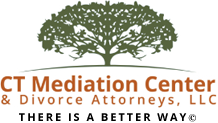The vast majority of people going through a divorce firmly believe they want to keep interactions with the legal system to a minimum. However, there are times when divorcing couples approach the divorce in a way that increases instead of reduces their involvement with the courts.
When people think about what is likely to increase their involvement with the courts during a divorce, they focus on factors such as the length of the marriage, whether or not there are children, assets like a house, retirement accounts, cars or jewelry, and liabilities like mortgage debt, credit card debt and medical bills. But, much more predictive of your involvement with the legal system is how you approach your divorce. If you and your soon to be former spouse can focus on reducing conflict and doing what is best for your kids, you will also reduce the time you spend dealing with courts. You are also likely to reduce the amount of billable attorney time you will have to pay for.
The Role of the Court
Many family courts give parents information and resources designed to help them come to agreement and courts appreciate and support parents who work to create a stable and functional life for their children after the divorce. Court orders for custody, child support and visitation help everybody understand what the new routine will be.
When divorcing couples are unable to come to agreement and the family court has to make decisions for them, it creates an adversarial process that can be very damaging. When parents approach divorce as “me against you” or “us against them” it encourages parents to paint themselves as the good parent who is always right and the other parent as the bad parent who is always wrong. This stance can drag out a divorce for years and puts children in a bind that is extremely stressful.
Kids First cites a statement by judge that summarizes the role of the court in a divorce:
“When two capable parents present a question of where a child should live, I think the most important factor of analysis is how each of the parents facilitates the relationship between the other parent and the child. For me that is number one. Whichever parent is not doing that is the parent I really scrutinize.”
The Role of the Lawyer
The role your lawyer takes in the divorce process is largely up to you in that if you want to take your ex-spouse for everything they’ve got, you can find a bulldog attorney who will do that. If you want to reduce conflict and damage, you can find a lawyer who will do that too.
Kids First cites several examples of the constructive role lawyers can play; including:
- Advising parents of their rights and responsibilities
- Explaining how the law affects their options
- Providing information about successful parenting plans that other parents have implemented
- assisting with negotiations
- Drafting a well thought out settlement agreement
- Preparing all legal documents for a smooth journey through the court system
- Foreseeing long-term implications of the plan
It is easy to lose perspective during a divorce and one of the most helpful rolls a lawyer can play is to tell their own client when he or she is off base. Ideally, your lawyer becomes a trusted ally with whom you can comfortably discuss problem and solutions.
Things to Consider when Finding a Lawyer
Because Kids First is an organization that focuses on reducing the negative impact of divorce on kids, they strongly advocate for hiring a non-combative attorney. They provide general advice such as:
- Be clear and direct about what style of approach is desired
- State primary goals and those which are less important
- Watch out for a lawyer who says, “I will get you exactly what you want.”
- Beware of proposed tactics that create needless hostility
- Look for assistance finding a fair solution or family harmony
At CT Mediation Center, our lawyers are trained mediators as well as family law attorneys. This means we focus on full disclosure, communication and reducing conflict. You can learn more about what to look for when hiring a divorce mediation lawyer at our post, “A Guide for Choosing an Attorney-Mediator or Collaborative Divorce Lawyer.”
Learn More
To learn more about how divorce mediation can help your case, contact any of our Divorce Attorney Mediators or Certified Divorce Financial Analysts at CT Divorce Mediation Centers. Divorce and Family Mediation and Collaborative Law are all we do. We have offices in Madison, New Haven, Cheshire, West Hartford, Glastonbury, West Hartford, and Windsor, CT. To find out more information or to schedule a consultation with our divorce experts, call us at (860) 986-1141.
DISCLAIMER:This publication is not meant to constitute legal, accounting, financial, investment advisory, or other professional advice. If legal, financial, investment advisory or other professional assistance is required, the services of a competent professional person such as CT Divorce Mediation center, should be sought.
